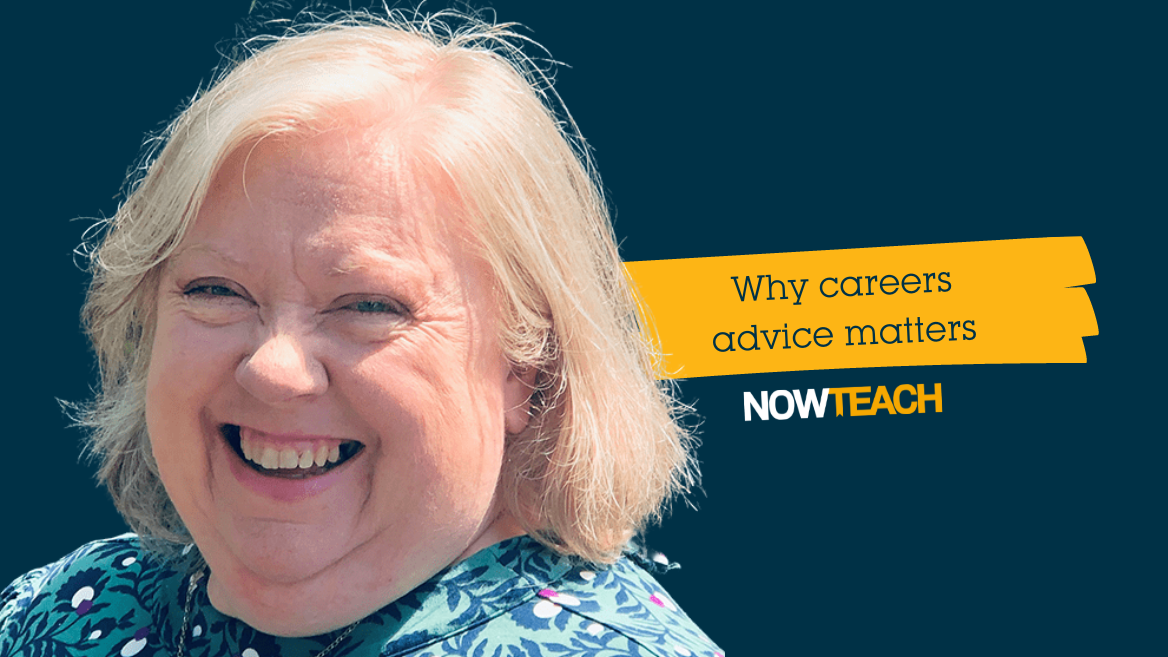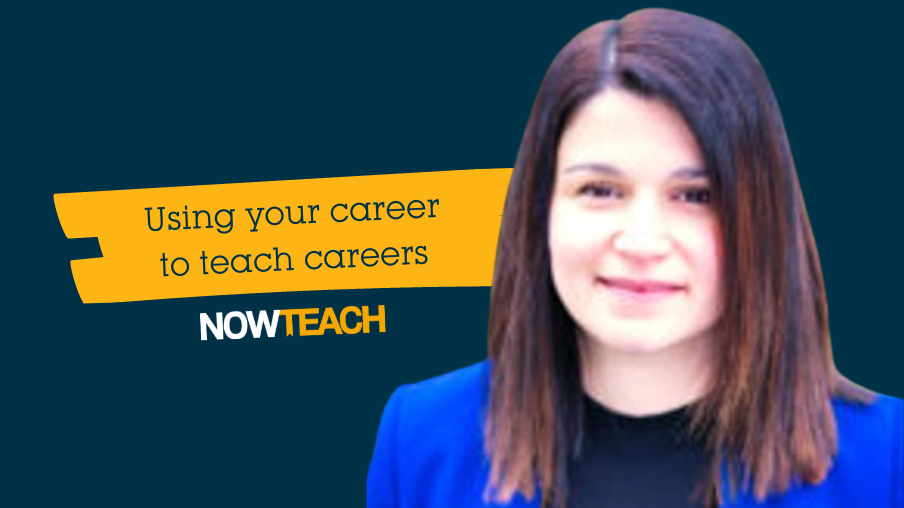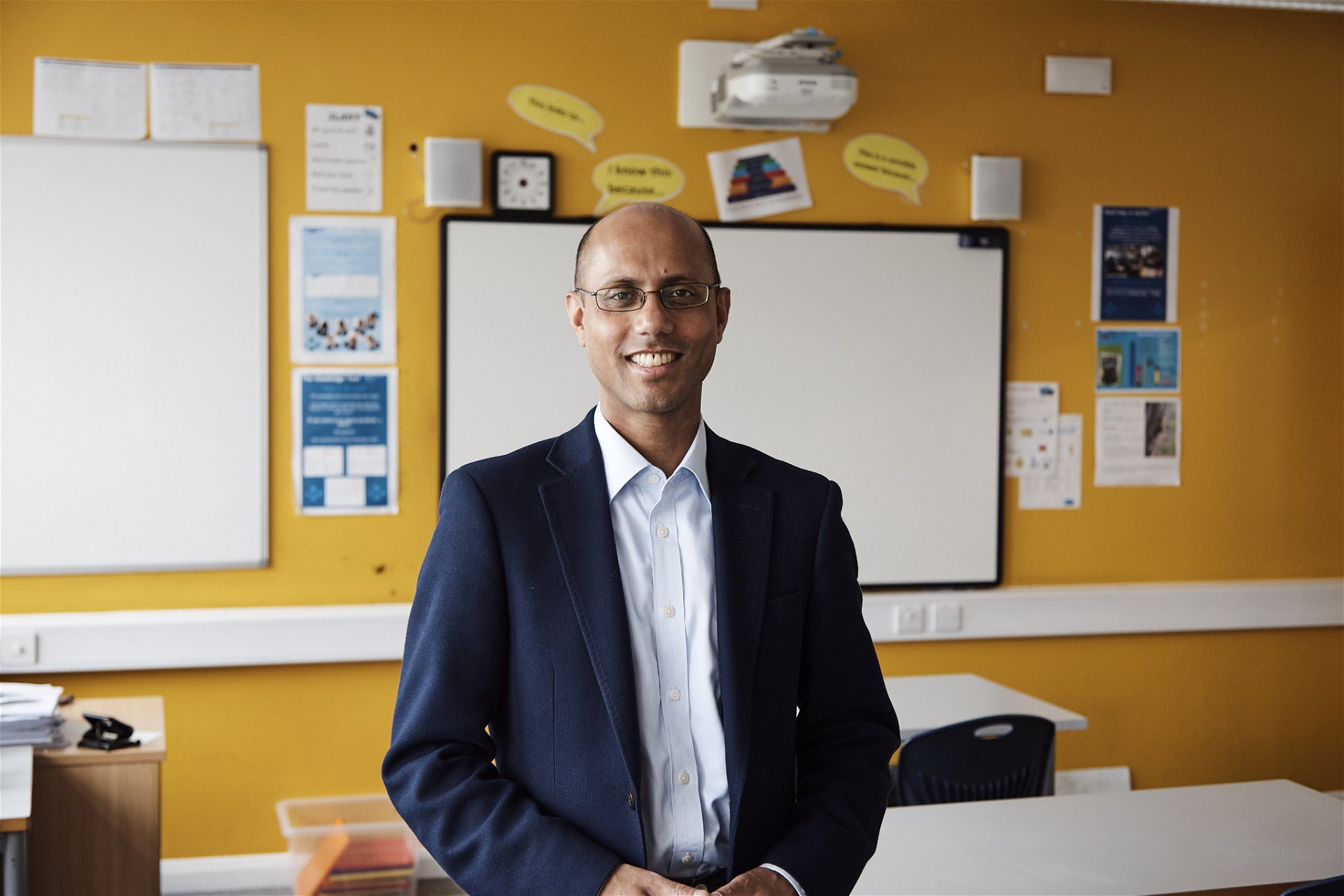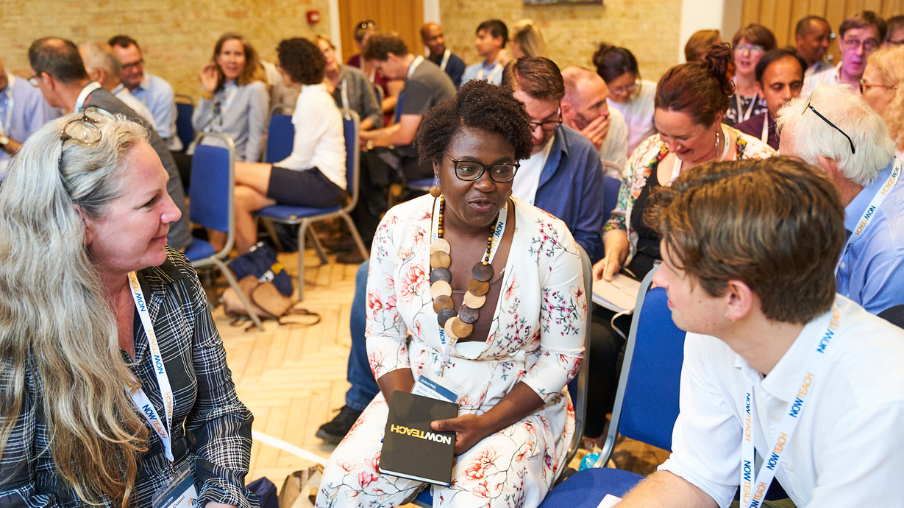School is busy: constantly fun and exhausting within the same ten minutes.
As Head of Sixth Form and careers, I’m part of the busy-ness of delivering lessons, while also having to constantly look ahead to plan future opportunities for our students. My focus is on helping them think about jobs and what qualifications will help them get a good job.
"Too many students aren’t yet aware of all the opportunity out there."
This means getting them ready for the next step after school. In most cases this is university for our sixth formers but across the school we have to make sure that all of our students are starting to think about work and what they can do to put themselves in a good position for a good job.
Teachers as role models
My school is Trinity Academy in Brixton, South London, with 600 students, so a smaller secondary school compared to others nearby, and we have a small 6th Form.
We’ve got an above-average proportion of students on free school meals, meaning they are in low-income families. We’re talking generalities here but that also means there are many students whose frame of reference for work is a lower-skilled job.
Many don’t have close social connections with people who work in higher-paid jobs or who have been to university. All their teachers are therefore important role models and sources of information.
It’s a truism that if you can see it, you can be it, and too many students aren’t yet aware of all the opportunity out there.
That has an impact on their job prospects, so we work with a number of programmes focusing on under-represented groups of students. One of my main goals is to increase students’ awareness of what jobs are out there and the right qualifications to get them.
"A key first thing for all students is employability and making a good impression at a job interview is vital."
Walking the walk
We go to a number of careers fairs to make sure the students are getting a range of inputs beyond school. After one of them, in the City of London’s Guildhall, we walked around the City for a bit.
We talked about the different jobs that people were doing in those huge buildings and what they had done to get there in terms of qualifications and experience. Some of the pupils really connected with it – and it was great to be able to say, yes, is possible for them if they take particular paths.
That’s not so say that university or corporate life is for everyone. I’d love degree apprenticeships to be more widely available, and know that lots of young people will stay near the local area and thrive. I just want that to be an informed choice.
"Just as school is always introducing new academic ideas, we also need to start showing them the range of jobs that come after school."
Sharing my experience
My previous career was in the Civil Service – joining the fast track scheme and working in education, employment, Europe and the Cabinet Office.For a time I had a brief for cross-departmental staff development, which is part of the reason I’m very committed to developing our students for a career.
The Civil Service bit of my career is more niche, so sharing my specific experiences there is with the students who are interested in politics, which tends to be the 6th Formers.
But a key first thing for all students is employability and making a good impression at a job interview is vital.
It’s things like helping students practice giving a polite formal greeting like a handshake, keeping eye contact, and expressing themselves clearly. Simple and really impactful.
Before they complete their GCSEs, every student also has a personal career interview with someone from outside the school. They don’t always go in with plans but they always come out with some new ideas.
Opening up options
That’s the most important thing – just as school is always introducing young people to new academic ideas and skills, there’s also the point where we also need to start showing them the range of jobs and qualifications that come after school.
There are quite a few boys who really want to be footballers, and we can’t let them have that as their only goal, pun intended.
So I put a lot of time going through the variety of options with my Sixth Formers. This year all of them are planning to go to university, and unless they have a really clear career in mind I advise them not to over-specialise but to use it as a chance to explore options. A degree is a lot of time and money to find that you’ve changed your mind about a career over the three years.
A purpose
Deciding to retrain and become a teacher has been one of the most satisfying career decisions I’ve ever made.
I’ve been fortunate to have these opportunities and been able to make the most of them. It’s not always been plain-sailing – but there are no regrets.
I want to help my students take advantage of the available opportunities – that means making them aware of what’s out there and then giving them the qualifications and confidence to take hold of them.
Your experience is valuable and will make a difference to the lives of young people. Register and we'll talk you through the rest.




